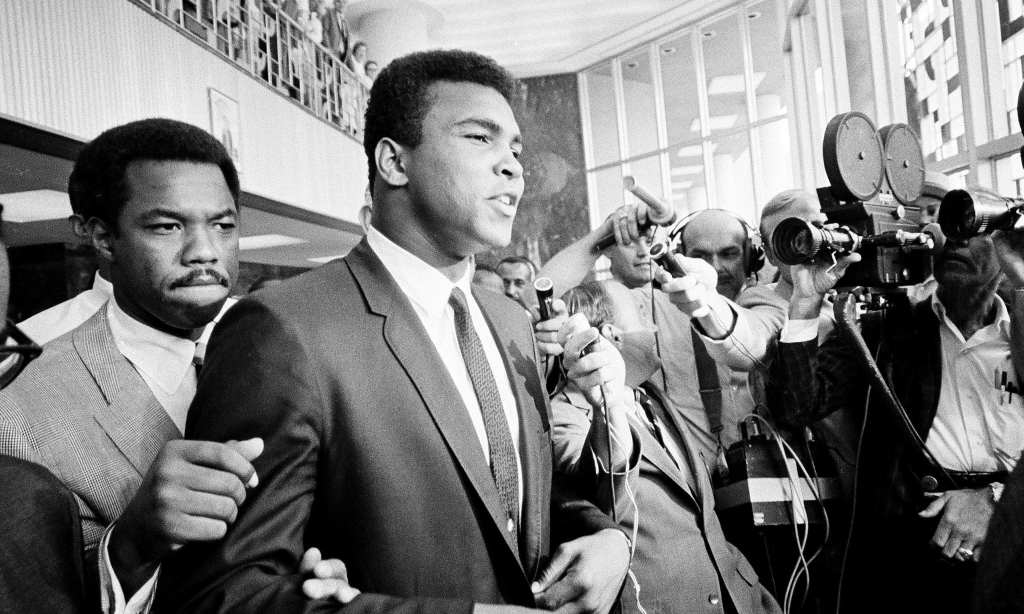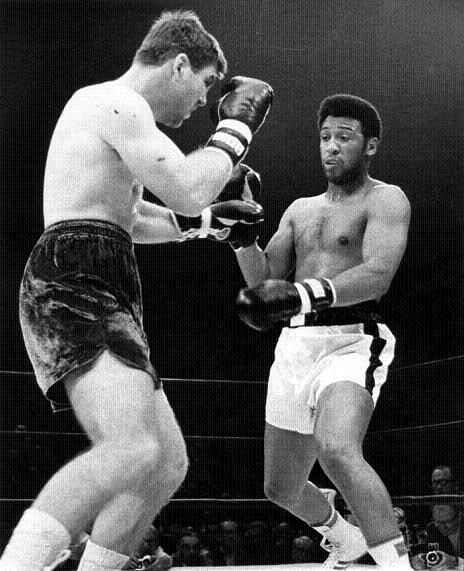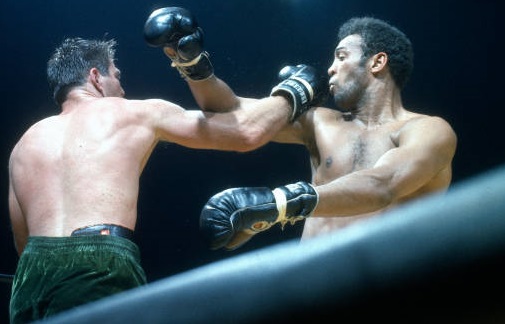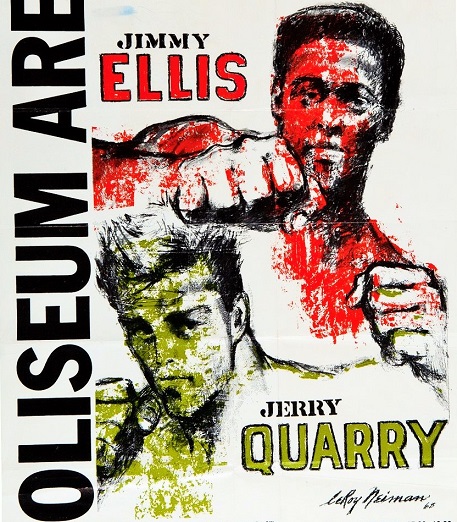In June of 1967, a jury found world heavyweight champion Muhammad Ali guilty of draft evasion for his refusal to join the military and participate in the war in Vietnam. He was promptly stripped of both his championship and his license to box in the United States. He would spend the next three and a half years in and out of court, contesting the verdict and avoiding jail time, and would not compete again until 1970.

In the meantime, boxing tried to move on. Do you think Ali was missed? A look at the ho-hum names lined up by the World Boxing Association to decide Muhammad’s successor is all that’s required to understand why the legend of “The Greatest” only grew during his exile. The less-than-inspiring roster included Leotis Martin, Thad Spencer, Jerry Quarry, Jimmy Ellis and Oscar Bonavena. The second best heavyweight on the planet, Smokin’ Joe Frazier, declined to take part.
The final match of the competition, Ellis vs Quarry, was held on April 27, 1968 in Oakland, California, exactly one year after Muhammad Ali’s refusal to be inducted. As if to further highlight the conspicuous absence of Ali’s ring brilliance, the contest proved to be about as exciting as sitting through one of his courtroom appeals.

Quarry, who later claimed to be suffering from a back injury, was primarily a counter-puncher. Thus he waited and waited for Ellis to bring the fight to him. And then waited some more. Meanwhile Ellis dutifully followed the instructions of cornerman Angelo Dundee and planted himself at ring center to strike with quick shots from long range. Quarry never got going, the crowd in the Oakland Coliseum booed, and after fifteen tedious rounds the decision went to Ellis.
So, Jimmy Ellis was supposedly the new heavyweight champion of the world. But the problem with this conceit was that all could well imagine Muhammad Ali outclassing with ease the versions of Ellis and Quarry that showed up in Oakland. Likely both on the same night. While consulting with his lawyers between rounds.

As matchmaker Teddy Brenner quipped after the dreary affair: “The WBA elimination tournament was a total success. It eliminated all eight fighters.”
Ellis would defend his title once, a controversial decision win over ex-champ Floyd Patterson, an outcome which only served to convince one and all that the best active heavyweight in the world was actually Smokin’ Joe Frazier. This fact was confirmed when Frazier stopped Ellis after five rounds on February 16th, 1970.
– Michael Carbert


